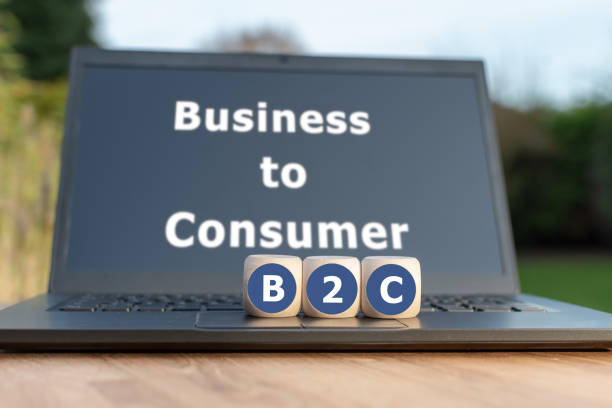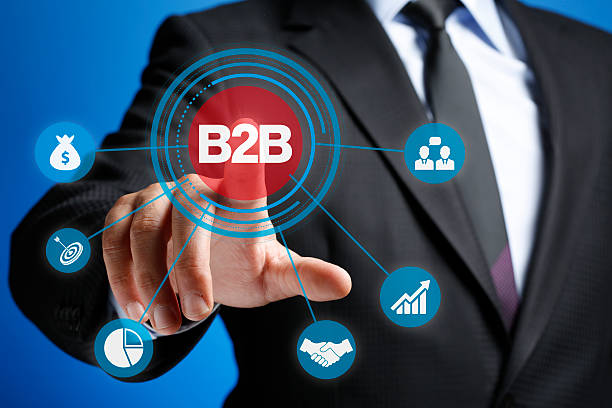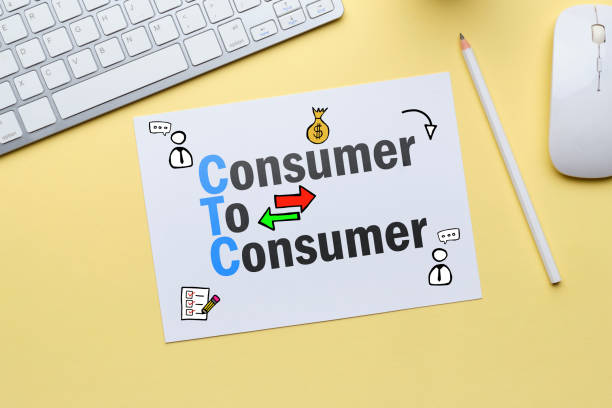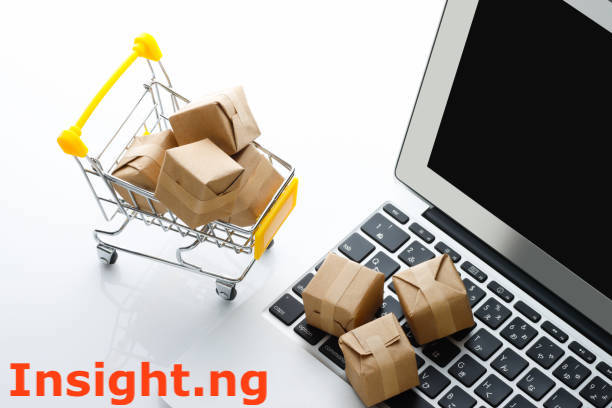Running an ecommerce business can be a daunting and confusing endeavour but can also be rewarding.
From finding a niche to figuring out what products to sell and how to sell them, it can be a lot to take on, especially in Nigeria, where ecommerce is a new and emerging industry, and many businesses still struggle to find success.
Ecommerce is a great way to make money, build a brand, produce a product and support the community.
The biggest obstacle that ecommerce businesses face is competition. It’s tough to stand in a crowded marketplace and make your business stand out.
However, it’s not impossible.
With this article, I will provide you with a comprehensive guide on the advantages and disadvantages of running an ecommerce business in Nigeria.
Whether you are a beginner or a seasoned ecommerce entrepreneur, we can help you make the right business decisions by breaking down the pros and cons of ecommerce.
If you are considering launching your ecommerce site, stick with me!
Table of Contents
What is Ecommerce?
Ecommerce, also known as electronic commerce, deals with individuals and companies that buy and sell goods and services via the internet.
In ecommerce, physical stores are not needed. Physical products and services are bought and sold online. Money and data are usually transferred to carry out transactions.
Ecommerce can be conducted using your computers, tablets, smartphones, and smart devices. If you have ever ordered anything online, you’ve participated in ecommerce.
Nearly every imaginable product and service is available through ecommerce transactions.
For example, Jumia Nigeria is one of the most popular online stores in the ecommerce industry in Nigeria. Ecommerce in Nigeria is growing in leaps and bounds.
Today, you can count about 60 online marketplaces providing services to users.
Ecommerce has helped businesses gain access to a wider and increased scale at which they sell their goods and services.
You can purchase everything you need online in the comfort of your home.
The COVID-19 pandemic led many customers to shop online for the first time, which has increased the demand for eCommerce significantly.
Read also: How to Start an Ecommerce Business in Nigeria (9 Easy Steps)
Advantages of Ecommerce in Nigeria
There are seasonal vendors like Jumia, Konga, Jiji, etc. that choose to do business online. It gives them a unique advantage over their store-bound competitors. Let’s dive deeper into these advantages.
-
Access to a wider and global market
Ecommerce allows individuals to reach customers all across the country and all over the world.
Ecommerce gives business owners the platform to reach people from the comfort of their homes, the customers can make any purchase anytime and anywhere, and significantly more individuals are getting used to shopping on their mobile devices.
As a Nigerian ecommerce entrepreneur, you are not limited to the country alone; ecommerce helps you expand your customer base. You can sell to customers worldwide.
When you go online, you go global; you get opportunities to meet and sell to customers no matter where they are.
-
Access to customers’ data and insight via tracking and analytics

Design of business graph statistics, big data analysis, global seo analytics.
Whenever you walk into a physical store to purchase a product, there is no record of what you looked at or what made you buy that particular product.
Most times, we feel uncomfortable giving out personal information to the retailers in the physical shop. If you run an ecommerce business, getting feedback from your customers isn’t a hard job.
Tracking and analytics tools like Google Analytics, Convertkit, and Mailchimp, make it easy to monitor your customer’s journey, preferences, and effectiveness of your marketing strategies.
These tools collect customers’ data on their purchases and why they made them. Information like this can help you improve your site’s shopping experience.
Read also: Top 6 Analytics Tools to Track Your Business Growth
-
Lower cost

Wooden blocks with percentage sign and down arrow, interest rate decline.
One of the best pros of starting and running an ecommerce business is the low cost. Setting up a physical store in Nigeria can cost up to hundreds of thousands of naira on rent alone.
Depending on the type of products you’re selling, you’ll also have to spend money on designs, utility bills, employees, and security.
Starting an ecommerce business is different; it’s very affordable and easy to set up.
Depending on the type of ecommerce store you run, you only need to hire employees when you grow to a certain level, and these employees can work remotely, which means you can always hire from countries with lower currency rates.
-
Creates more sales medium
Information you get about a product in a physical is often limited. One benefit ecommerce provides is the availability of multiple sales channels for information and product marketing.
Customers can know more about your product through reviews, testimonials, videos, and content you put on your site. These usually attract more attention and increase your conversion rate.
-
You can capitalize on impulse buying
Social media is full of impulse buyers who buy things with attractive product photography, vibrant colors, and human emotions.
You can capitalize on this by creating ads that drive impulse buys.
An example of this is the jumia countdown timers on certain products which encourage people to buy due to their limited qualities.
-
24/7 income stream
Unlike a physical store that has a time limit, online stores are open 24/7 for business.
Being available at all hours gives you an advantage over your competitors in a physical store by attracting people who don’t work normal hours or are too busy to purchase things in a physical store.
The great thing about it is that you don’t have to be awake 24/7 to take orders; through an automated ordering system, customers can receive confirmation emails when they place their orders at night.
-
Personalized shopping experience

Smiling young couple walking through the mall after some shopping
Running an ecommerce business creates an avenue to create a personalized experience for your customers through email marketing campaigns and upsells based on the customer’s data (what they have looked at, purchases they’ve made, location, or what they added to their cart).
-
Easy to give the best recommendations
Ecommerce allows ecommerce entrepreneurs to provide product recommendations for their customers.
They can display best sellers others have bought and are happy with. This can help in increasing conversions.
-
Easy Business scalability

Money and idea balance. Investor compare business ideas and finance on scales. Buying creative project or startup, tiny human vector. Illustration idea equality profit, harmony and balance investment
One benefit of running an ecommerce business is how easy and quick it is to upscale and grow your business when the market asks for it.
As your business and customer base grows, a physical store can feel crowded. You’ll need to find a bigger space, renovate or wait for your rent to expire.
This can be difficult and can bring about loss of customers. Ecommerce businesses are not limited by the availability of space.
-
Absence of physical and temporal restriction
Since there are no physical restrictions, there is no limit to the number of items you wish to display to potential customers in an ecommerce business.
-
It isn’t invasive
Some people hate the idea of walking into a physical store either due to being an introvert or just being lazy.
They prefer a less invasive approach which is online shopping.
If a buyer wants to contact the store owner, they can use the live chat feature or send a direct message.
Disadvantages of E-commerce Business in Nigeria
Starting an ecommerce business is not all bed of roses. There are some cons that you’ll experience if you are planning to start an ecommerce business in Nigeria that you might not experience in a physical store.
-
Product quality can’t be tested before purchase
Customers can’t feel the product personally for originality before purchase, unlike physical stores where you can test the product quality before purchase.
This is why most Nigerians still prefer buying from a physical store. If you plan to run an ecommerce business, your ecommerce site must offer a “get your money back guarantee or a return policy”.
-
You must have access to the internet
Internet connection is one of the greatest cons of running an ecommerce business, especially in Nigeria, where slow internet connection is one problem we constantly face.
To run or purchase from an ecommerce store, you need to have access to a high-speed internet connection for an outstanding user experience.
Your ecommerce business will lose visitors with a slow internet connection.
-
Credit card fraud

Fraud Alert in red keys on high-tech computer keyboard background with security engraved lock on fake credit cards.
This is one fast-rising problem online businesses face. The level of credit card fraud that Nigeria’s ecommerce industry has faced in recent years is outrageously high.
This is why many potential customers shy away from online transactions.
-
Security problems
The increase of ecommerce stores has also led to an increase in identity theft and fraud.
Many businesses in Nigeria’s ecommerce industry have fallen prey to these hackers who steal customers’ data, causing a breach of trust among customers.
-
Your website is your only hope
If you want to start an ecommerce business, the website is the only thing you have. There might be downtimes, a site crash, or tech issues.
No one can buy from you if your ecommerce store crashes or develops tech issues. These downtimes might be temporary but they can affect your revenue and business in general.
-
Complex legal and tax regulations
Since ecommerce involves selling to a global market, i.e. selling to consumers in different countries, you’ll have to learn and follow each of these countries’ legal and tax regulations, which can be complex and quite confusing.
-
High competition rate
The biggest obstacle that ecommerce businesses face is competition. It’s tough to stand in this crowded marketplace and make your business stand out.
There are some ways around this. You have to understand your competitors thoroughly and do something your competitors aren’t doing. Try a different marketing strategy.
Would you like to take a chance on your business with collaboration? Sponsor your business with us today to reach a wider audience.
-
Customers can be impatient
Customers will always need customer service or tech support. If they don’t get an immediate response to their problems, they get impatient and can shop elsewhere.
Some chatbots help customers with answers to their questions, but they can’t take the place of a real person in a physical store.
-
Shipping inconveniences

Container ships line the Port causing long shipping delays amidst a global supply.
This can be considered one of the worst cons of running an ecommerce business. In a physical store, you take away whatever you buy immediately.
For online shopping, it’s the exact opposite.
Products you buy can arrive in a week or more even after paying extra fees for shipping; this puts off customers and adds inconvenience to business, especially when a customer isn’t satisfied with a product and wants a refund.
Different Types of Ecommerce Business Models
-
Business-to-consumer (B2C)

The text “Business to Consumer” is written on the display.
Business-to-consumer ecommerce is when a business sells goods or services to an individual consumer.
If you decide to start your own ecommerce business, you’ll likely sell to customers instead of businesses. E.g. of B2C businesses in Nigeria are Ali Express Ltd., Jumia Nigeria, Jiji, Konga, etc.
-
Business-to-business (B2B)

Businessman Pressing Sign Button B2B Virtual Set
Business-to-business ecommerce is the transaction between two businesses.
It is when a business sells products or to another business. E.g. Alerzo, Omnibiz Africa, etc.
-
Consumer-to-consumer (C2C)

Consumer to consumer as a business model.
Consumer-to-consumer ecommerce is when an individual sells something to another individual. E.g. selling your car to another person through online marketplaces like Facebook, eBay, Ali Express, etc.
-
Consumer-to-business (C2B)
Consumer-to-consumer ecommerce is when an individual sells products or services to a business, e.g. social media influencers.
Are you an entrepreneur, or do you love entrepreneur-related articles? Then, you are in the right place. Simply subscribe to our YouTube channel or our newsletter to keep track of more mind-blowing posts.
-
Direct-to-consumer (D2C)

Cropped shot of a delivery man handing over a package.
Direct-to-consumer ecommerce is when a manufacturer markets and distributes their products directly to their customers without going through intermediaries like a retailer, distributor, or wholesaler, e.g. Mint Eyewear, Taeillo, etc.
-
Business-to-business-consumer (B2B2C)
B2B2C is a business model where a company sells its product or services to a consumer in partnership with another company.
-
Business-to-government

Representing Business 2 Government marketing Model.
Business-to-government ecommerce is when a business sells its product to government agencies.
How to Give Your Ecommerce Business an Edge
- You need to place focus on providing an outstanding user experience. For this to happen, you must prioritize creating an appealing website design that can attract potential customers.
- Your website needs to be easy to navigate and fast to build a good name for your business.
- Make the most of social media platforms to strengthen your online presence and build a solid customer base.
A high percentage of customers perform research on social media before making a purchase.
You need to make sure your brand is at the forefront of these searches.
- Buy software programs or hire a webmaster to audit and maintain your site’s security and reduce fraud risks.
- Make sure your target customers search for your product online with SEO (Search engine optimization)
Read also: How to Do Your Website Seo Yourself
Conclusion
There you have it- The pros and cons of running an ecommerce business in Nigeria.
The pros far outweigh the cons. Learning how to overcome the cons will help you make progress in the ecommerce industry.
The rapid growth of ecommerce in recent years is undeniable. The advantages of ecommerce businesses are extremely enticing. Everything is going digital, and it’s best to stand at the forefront.
Hey! Join Insight’s WhatsApp community today. There’s so much we have to offer you as a budding entrepreneur.
About Author
-
Esther Onyeije is a freelance content writer who specializes in writing Blog posts, Articles, and social media posts for blogs and websites.
She uses her background in writing to provide solutions to the pain points of your target audience and create clear and accessible content that makes challenging topics easy for any reader.
Latest entries
 CareerNovember 30, 2023How to Make Money on Twitter
CareerNovember 30, 2023How to Make Money on Twitter

 CareerMarch 20, 2023A Comprehensive Guide to Searching for International Remote Jobs as a Nigerian
CareerMarch 20, 2023A Comprehensive Guide to Searching for International Remote Jobs as a Nigerian

